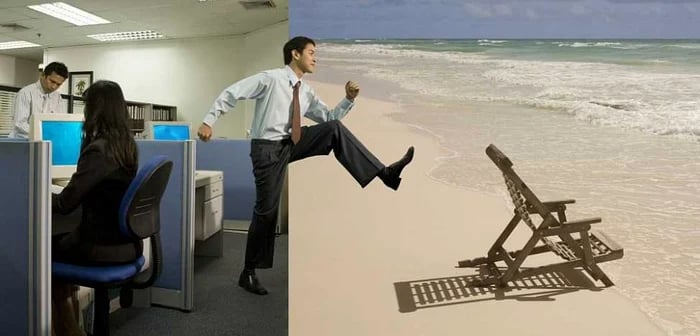CABINET INDIVIDUAL DE PSIHOLOGIE PAP ELENA
servicii psihologice de calitate
How to Avoid Post-Vacation Depression and Anxiety
How to Avoid Post-Vacation Depression and Anxiety
Elena PAP
3/11/20243 min read


Returning from a vacation or holiday can be a challenging time for many people, as they have to transition from relaxation and fun to their daily routine and responsibilities. This process can be accompanied by feelings of sadness, anxiety, and stress, a phenomenon known as "post-vacation depression." To avoid these unpleasant feelings and make the return to daily life easier and more enjoyable, psychologists recommend adopting a simple strategy: planning the next vacation. This method, based on scientific research, can be an effective tool for maintaining mental and emotional well-being during the post-vacation period.
Scientific Studies:
A recent study published in the Journal of Happiness Studies examined the effects of planning the next vacation on mood and stress levels in individuals returning from vacation. Researchers recruited a sample of 500 adults returning from a vacation and divided them into two groups: one group was encouraged to plan and set their next vacation, while the other group served as a control and did not receive this instruction. Participants were then evaluated upon their return from vacation and again after one month.
The group that planned the next vacation experienced:
1. Lower levels of stress: Participants who had already planned their next vacation reported lower levels of stress and anxiety during the transition back to their daily routine compared to the control group. For example, a participant named Alex, aged 35, noted that planning a mountain getaway with his family significantly reduced the anxiety he felt about returning to work.
2. Improved mood: Individuals who had another vacation already planned reported higher levels of mood and overall life satisfaction in the following weeks after returning from vacation. For instance, Maria, aged 40, mentioned that anticipating her next vacation in an exotic city brought a sense of joy and anticipation into her daily life.
3. Increased motivation: Planning the next vacation provided participants with a sense of anticipation and motivation to achieve their daily goals, including transitioning back to work. For example, Robert, aged 30, set a vacation in an exotic destination as a reward for his professional accomplishments and felt that this goal motivated him to approach his daily tasks with more enthusiasm.
These findings suggest that planning the next vacation can be a crucial factor in maintaining mental and emotional well-being after returning from a period of rest and relaxation. By applying this simple strategy, you can keep your spirits high and reduce stress and anxiety during the post-vacation period.
Other Tips to Avoid/Alleviate Post-Vacation Depression:
After the vacation period, it's essential to gradually adapt to returning to your daily routine to avoid post-vacation depression and anxiety. An effective method is to give yourself two transition days at home before returning to your usual activities. During this time, you can plan strategies for reintegrating into work and gradually reconnect with your daily responsibilities. Start by checking emails and professional correspondence, but do this gradually without overexerting yourself.
Once you're back home, don't neglect the beautiful memories from your vacation. Reviewing photos and videos helps you reminisce about pleasant moments and maintain a positive mood. Sharing vacation experiences with colleagues can create a relaxed atmosphere at work and help you reconnect with them.
Returning to your daily routine can be easier if you maintain healthy exercise habits. Physical activity helps you cope with stress and combat symptoms of post-vacation depression, such as fatigue and irritability. Even a short walk every day can have a positive impact on your well-being.
As you return to your usual schedule, try to regain the proper rhythm of sleep and nutrition. Restful sleep and regular meals contribute to maintaining mental and emotional balance. Avoid consuming heavy meals before bedtime and ensure you get enough rest to start the day fresh and energetic.
By applying these tips and adopting a balanced approach, you can make the transition from vacation to daily life easier and more enjoyable, thereby avoiding post-vacation depression and anxiety. Prioritize your mental and emotional health and give yourself the time needed to gradually adapt to the new conditions.
